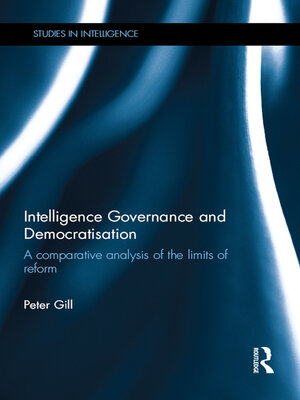Intelligence Governance and Democratisation
ebook ∣ A Comparative Analysis of the Limits of Reform · Studies in Intelligence
By Peter Gill

Sign up to save your library
With an OverDrive account, you can save your favorite libraries for at-a-glance information about availability. Find out more about OverDrive accounts.
Find this title in Libby, the library reading app by OverDrive.



Search for a digital library with this title
Title found at these libraries:
| Library Name | Distance |
|---|---|
| Loading... |
This book analyses changes in intelligence governance and offers a comparative analysis of intelligence democratisation.
Within the field of Security Sector Reform (SSR), academics have paid significant attention to both the police and military. The democratisation of intelligence structures that are at the very heart of authoritarian regimes, however, have been relatively ignored. The central aim of this book is to develop a conceptual framework for the specific analytical challenges posed by intelligence as a field of governance. Using examples from Latin America and Europe, it examines the impact of democracy promotion and how the economy, civil society, rule of law, crime, corruption and mass media affect the success or otherwise of achieving democratic control and oversight of intelligence. The volume draws on two main intellectual and political themes: intelligence studies, which is now developing rapidly from its original base in North America and UK; and democratisation studies of the changes taking place in former authoritarian regimes since the mid-1980s including security sector reform. The author concludes that, despite the limited success of democratisation, the dangers inherent in unchecked networks of state, corporate and para-state intelligence organisations demand that academic and policy research continue to meet the challenge.
This book will be of much interest to students of intelligence studies, democracy studies, war and conflict studies, comparative politics and IR in general.







